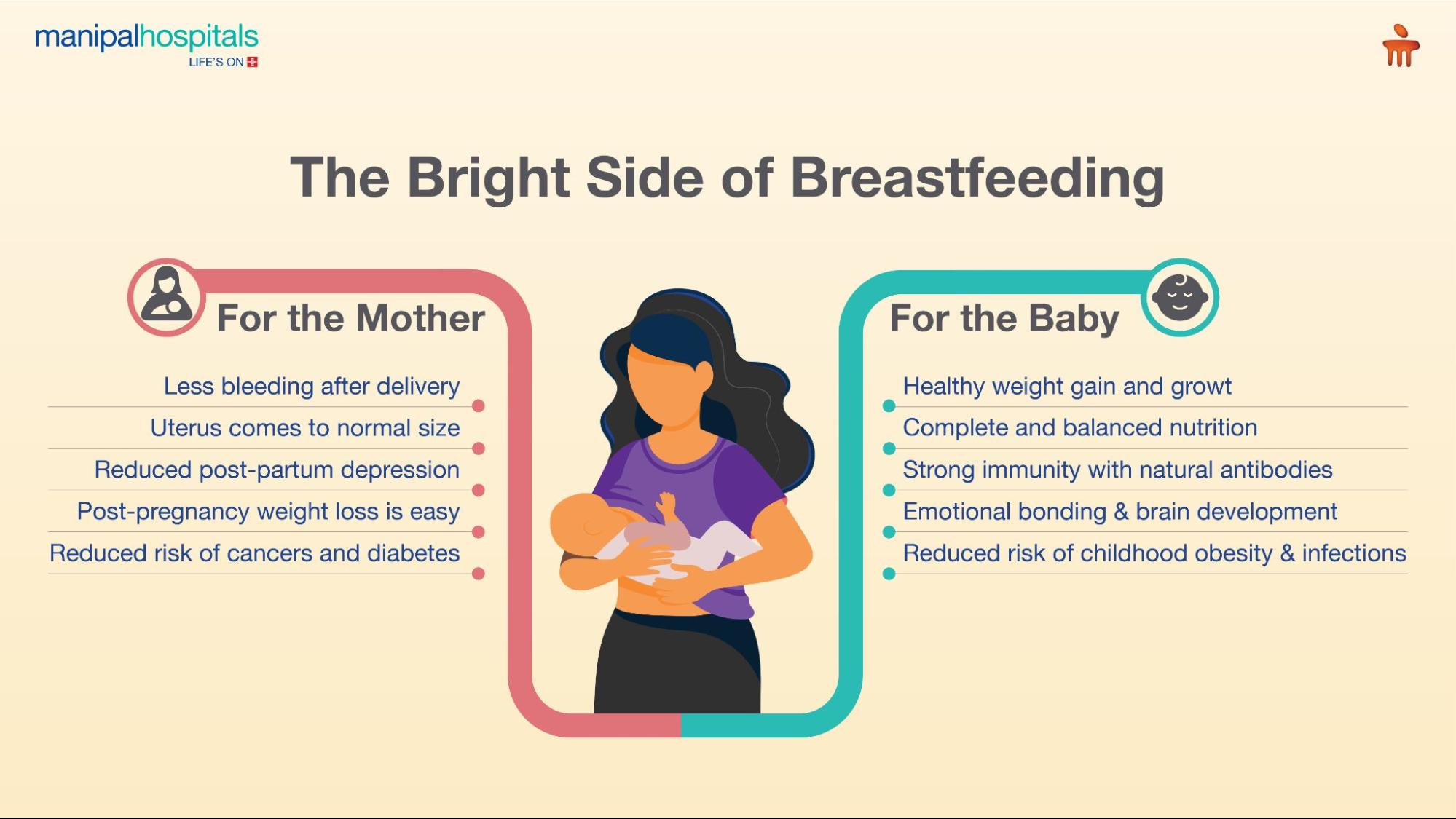
World Breastfeeding Week is observed globally from 1st to 7th August every year. The purpose is to promote and support the breastfeeding culture as an essential to a healthy start to life and improvement of mother and child health. This initiative began in 1992, as a joint venture by the World Alliance for Breastfeeding Action (WABA), the World Health Organisation (WHO), and the United Nations Children’s Fund (UNICEF) in honour of the ‘Innocenti Declaration’, a commitment made in 1990 by international organisations and governments to protect and promote breastfeeding.
Synopsis
World Breastfeeding Week 2025: Theme
The theme for World Breastfeeding Week keeps changing each year. For the World Breastfeeding Week 2025, the theme of the campaign is "Prioritise Breastfeeding: Create Sustainable Support Systems". The theme focuses on the urgent need to establish long-term, equitable support systems to empower mothers by making breastfeeding practical and accessible for all. Besides, it also highlights the significance of breastfeeding in environmental sustainability and climate resilience. It advocates for breastfeeding as a means to reduce waste and resource consumption as compared to formula feeding.

Why Breastfeeding Matters: Key Benefits for Mother and Baby
The benefits of breastfeeding, for both mother and baby, are manifold-
|
|
Mother |
Baby |
|
Physical |
|
|
|
Emotional |
|
|
Social Impact of Breastfeeding
Supportive outlook and positive norms about breastfeeding, in a society, can significantly create an environment and mindset for a mother to initiate and sustain breastfeeding. Promotion of breastfeeding as a public health strategy can vastly impact infant health, maternal well-being, and broader public health outcomes.
Ways to Raise Awareness during World Breastfeeding Week 2025
Collaborative efforts of individuals, societies and the healthcare providers can go a long and effective way to raise awareness and reinforce a positive environment to promote breastfeeding, thereby improving women’s reproductive health as well as the child care scenario in a society.
Individuals
-
Learning about the benefits of breastfeeding and discussing it openly in personal networks as well as social media
-
Offering emotional and practical support to breastfeeding friends and family in public or at work
-
Lactating mothers can take the lead by breastfeeding in public to help normalise it
Societies
-
Organising events and spreading awareness through different media in support of breastfeeding
-
Advocate and encourage breastfeeding-friendly policies, like lactation rooms in public places
Healthcare providers
-
Guiding parents on breastfeeding and its benefits, as well as addressing myths and misconceptions during the early stages of pregnancy (prenatal stage)
-
Addressing post-partum issues and providing necessary lactation training to new mothers (postnatal stage)
-
Providing trained staff support to breastfeeding mothers
Some Inspiring Words
Let us look at some inspirational and supportive quotes propagating the significance of breastfeeding for the baby, the mother and the world as a whole:
-
"Breastfeeding is a mother’s gift to herself, her baby, and the Earth" – Pamela K. Wiggins (Author)
-
"Strong mothers, healthy babies, better world" – UNICEF
-
"The natural power of breastfeeding is one of the greatest wonders of the world" – Anwar Fazal (WABA Founder)
-
"Something as simple as better breastfeeding could save a million children a year" – Anne M. Mulcahy (Former CEO- Xerox Corporation)
-
“Breastfeeding is one of the best ways to ensure a child’s health and survival” – World Health Organisation
-
“The benefits of breastfeeding last a lifetime” – La Leche League International
-
“Breastfeeding is one of the most effective–and cost-effective–investments families and countries can make” – UNICEF & WHO
Explore More of Our Blogs: Juvenile Rheumatoid Arthritis in Children: Symptoms, Causes & Treatment
Golden Rules of Breastfeeding
Below are the keys to proper breastfeeding with optimum outcome:
-
Start breastfeeding within the first hour after birth
-
Ensure proper latching where the baby’s mouth covers the nipple and a good portion of the areola
-
Feed the baby only breast milk (no water, juice, or formula food) for the first six months
-
Feed the baby whenever they exhibit signs of hunger
-
Keep yourself well-nourished and hydrated for a steady milk supply
-
Try to avoid stress as it may adversely affect the supply of milk and bond with your baby
-
Do not forget to burp the baby after feeding to prevent gas and discomfort from any air swallowed while nursing
-
Feed your baby in a relaxed position and calm environment
-
Clean the nipples regularly but avoid soaps and strong chemicals
-
Consult your physician if there is any sort of discomfort or pain while breastfeeding
Consult Best Paediatrician and Neonatologist at the Manipal Hospitals Saltlake, Kolkata for expert advice and treatment.
Conclusion
Breastfeeding is the cornerstone of a child’s health and a mother’s overall wellbeing. Continued support from families, friends, workplace and society; proper education and awareness on breastfeeding; and lactation-friendly policies together can empower mothers to respond to their baby’s breastfeed needs with confidence anytime and anywhere.
The Department of Paediatrics and Child Care at Manipal Hospitals Saltlake, Kolkata promotes breastfeeding through comprohensive support and education.
Supporting breastfeeding is a shared responsibility—and an investment in a healthier future for all!
FAQ's
The World Health Organisation recommends exclusive breastfeeding for the first 6 months, followed by a combination of breastfeed and complementary foods up to 2 years or beyond
Yes, in most cases. Breastfeeding while sick can pass antibodies to your baby and help protect them.
Many medications are safe, but you should consult your doctor before taking any medicine.
No, breastmilk alone is enough as a source of hydration, even in hot climates. It provides both nutrition and hydration for babies under 6 months.
At around 6 months of age, start with soft, iron-rich foods while continuing to breastfeed





















 5 Min Read
5 Min Read





















